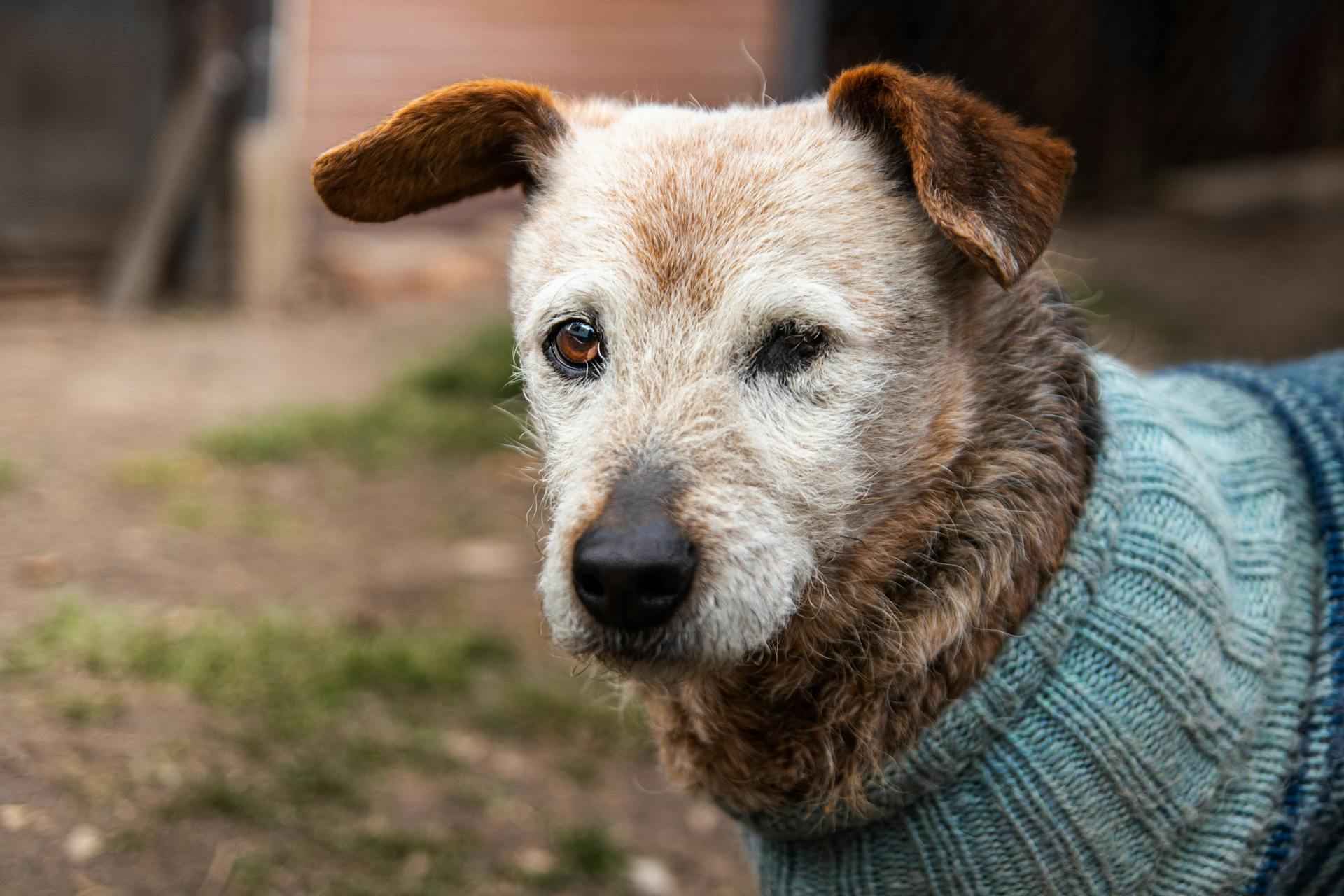
As you consider bringing a new furry friend into your family, it's essential to understand canine age and lifespan. Dogs mature at different rates depending on their breed and size, with smaller breeds reaching physical maturity around 12-18 months and larger breeds taking up to 2-3 years.
Lifespan varies significantly among breeds, with smaller dogs living up to 15 years or more and larger dogs typically living between 8-12 years.
Understanding Canine Lifespan
Dogs come in all shapes and sizes, and their lifespan can vary significantly depending on their breed and size. The average lifespan for dogs is between 10–13 years.
Smaller dog breeds tend to live longer than larger ones, with an average lifespan of 10–15 years. This is because larger dogs age faster, with every 4.4 pounds of body weight decreasing their life expectancy by 1 month.
As dogs get older, they go through different life stages. Most dogs reach their senior years between the ages of 8 and 10 years, during which they may slow down and experience more health problems.
Here are some average lifespans for different-sized breeds:
It's essential to understand that these lifespans are averages and can vary depending on individual factors, such as health and lifestyle.
Calculating Canine Age
Dogs age at different rates depending on their size, with smaller breeds aging more slowly than larger breeds. This means that a 1-year-old dog is equivalent to a 15-year-old teenager, with all their teeth developed and reaching sexual maturity.
The American Veterinary Medical Association (AVMA) provides guidelines to identify the senior phase of life for dogs, which varies among breeds and sizes. Small or toy breeds are typically considered seniors at ages ranging from 8 to 11 years, while giant breeds are seniors around 6 to 7 years.
To calculate a dog's age in human years, you can use the formula based on research by Wang et al. (2020), which compares human DNA methylation changes with those of dogs. The formula is: HumanAge = 16.2 * ln(DogAge) + 31.1. For example, a 12-year-old dog will be nearly 71 in human years.
Alternatively, you can use a dog age chart to determine a dog's age in human years. The chart shows the equivalent human age for a given dog age, taking into account the dog's size. Here's a summary of the chart:
Keep in mind that these are general guidelines and may vary depending on individual factors.
Factors Affecting Lifespan
A dog's size is a major factor in determining their lifespan, with smaller breeds generally living longer than larger breeds. This is because common medical conditions that dogs acquire as they age, such as incontinence and cancer, can be more difficult to manage in larger dogs and lead to euthanasia sooner.
Smaller breeds tend to have the longest lifespan, averaging 10-15 years, while large breeds have a slightly shorter lifespan, at 9-12 years. Giant breeds, on the other hand, have the shortest average lifespan, at 8-10 years.
Here are some popular breeds and their average lifespans, grouped by size:
- Small breeds: Chihuahua (14-16 years), Pomeranian (12-16 years), Yorkshire Terrier (11-15 years), Shih Tzu (10-18 years)
- Medium breeds: French Bulldog (10-12 years), Cocker Spaniel (10-14 years), Bulldog (8-10 years), Boxer (10-12 years)
- Large breeds: Golden Retriever (10-12 years), Rottweiler (9-10 years), Belgian Malinois (14-16 years), Bernese Mountain Dog (7-10 years)
- Giant breeds: Great Dane (7-10 years), Irish Wolfhound (6-8 years), Newfoundland (9-10 years), Saint Bernard (8-10 years)
Why Small Lives Longer?
Small dogs tend to live longer than larger dogs, with an average lifespan of 10-15 years. This is because smaller breeds are less prone to common medical conditions that affect larger dogs.
Smaller breeds experience fewer health issues as they age, which contributes to their longer lifespan.
One possible reason for this is that smaller dogs are less likely to develop conditions like incontinence, cancer, and mobility issues that can lead to euthanasia sooner.
Genetics also play a role, as smaller breeds are less likely to inherit specific hereditary diseases that can shorten their lifespan.
In fact, mixed-breed dogs, which often combine the genes of smaller breeds, tend to live longer than purebred dogs.
Here are some popular small dog breeds and their average lifespans:
These breeds are not only longer-lived but also less prone to certain health issues, making them great companions for many dog owners.
How Long Do Large Animals Live?
Dogs get larger, they are more likely to be affected by difficult-to-manage arthritis and certain types of cancer. The Golden Retriever and Bernese Mountain Dog are particularly prone to cancer.
Some large dog breeds live longer than others. The Belgian Malinois lives for 14-16 years, which is longer than most large breeds.
Here are some popular large dog breeds and their average lifespans:
- Golden Retriever: 10–12 years
- Rottweiler: 9–10 years
- Belgian Malinois: 14–16 years
- Bernese Mountain Dog: 7–10 years
Adult and Aging: Understanding Variation
Adult dogs and aging can be a bit tricky to understand, but it's not as complicated as you might think. The average lifespan of a dog varies greatly depending on its size and breed. In general, smaller dog breeds live longer than larger dog breeds.
You might like: Age of Pomeranian Dog
Large breed dogs, for example, have a slightly shorter lifespan than medium breed dogs, averaging 9-12 years. This is because they are more prone to difficult-to-manage arthritis and certain types of cancer. The Golden Retriever and Bernese Mountain Dog are particularly prone to cancer.
Smaller breed dogs, on the other hand, tend to live longer, with an average lifespan of 10-15 years. However, they are more prone to liver, kidney, adrenal disease, as well as degenerative heart disease and pancreatitis.
One interesting fact is that for every 4.4 pounds of body weight a dog has, his life expectancy is decreased by 1 month. This means that a larger dog ages faster than a smaller dog. To put it into perspective, a 10-year-old large dog is equivalent to a 14-year-old small dog in terms of physiological age.
Here's a rough estimate of the aging process for different size categories:
Keep in mind that these are rough estimates and can vary depending on the individual dog and its breed.
Developmental Milestones
Puppies develop at an incredible rate, with some milestones happening much earlier than their human counterparts. A two-month-old puppy is roughly the equivalent of a one-year-old human in terms of both brain and body development.
Weaning is another area where puppies excel. They typically start weaning between 4-6 weeks old, whereas humans often take much longer, sometimes up to 2 years.
Puppies reach major milestones at different ages, but here are some key ones:
As puppies grow, their growth plates close at different ages. By 18 months-2 years, they're fully closed, whereas humans take much longer, with growth plates closing between 14-16 years.
Keep in mind that these are just averages, and some breeds develop more slowly than others. However, just like humans, puppies tend to catch up eventually, and by about six months of age, they slow down in their growth and development.
Frequently Asked Questions
Is a 7 year old dog a senior?
Yes, a 7-year-old dog is considered a senior, especially if it's a giant-breed dog. Learn more about senior dog care and what to expect at this life stage.
Is 1 human year 7 years for a dog?
According to the dog age conversion, 1 human year is equivalent to 7 dog years, but this rate changes after the dog reaches age 2.
How old is a 10 year old dog?
A 10-year-old dog is equivalent to a 53-70 year old human, depending on the calculation method used. This age comparison is based on the average human life expectancy in developed countries.
What is 1 year in dog years?
One human year is equivalent to about 15 dog years. This accelerated aging rate is a key factor in understanding canine life stages.
Sources
- https://pettownsendvet.com/dog-years/
- https://wellbeloved.com/blogs/caring-for-dogs/how-old-is-my-dog-in-human-years
- https://www.petmd.com/dog/care/how-long-do-dogs-live
- https://www.embracepetinsurance.com/waterbowl/article/how-old-is-my-dog-in-human-years
- https://www.gigacalculator.com/calculators/dog-years-calculator.php
Featured Images: pexels.com


